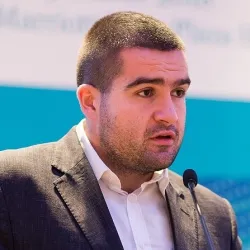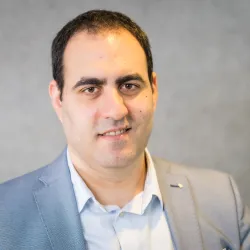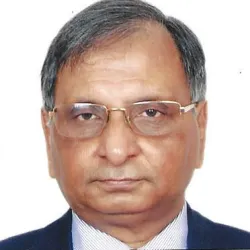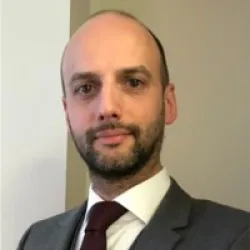Suptech: Disruptive Technologies in Reporting, Regulation and Supervision 2022
Suptech: Disruptive Technologies in Reporting, Regulation and Supervision 2022
Suptech: Disruptive Technologies in Reporting, Regulation and Supervision
September 26 – 29
Live Content sessions held: 9am–1pm (EDT) | 2pm–6pm (BST) | 9pm–1am (SGT)
Chair: Klaus Löber, chair of the CCP supervisory committee at European Securities and Markets Authority (ESMA)
In 2022, technological innovation is disrupting financial markets and their regulation. Cryptocurrencies are forcing regulators and supervisors to take sides, cyber threats bring new dimensions to systemic risk, and digitalisation is generating revolutionary platforms for both improved financial services and financial crime and fraud. Increasingly, supervisors see proactive application of advanced technologies like machine readability, big data, and machine learning opening up unprecedented regulatory and supervisory possibilities. Innovation in both suptech and regtech offer new tools and frameworks to accelerate risk-based reporting as well as monitor systemic risk. Yet, central bankers recognise that in order to make the most of these emerging opportunities, significant change is needed: at methodological, technical and institutional levels.
This course is designed to equip central bankers to meet these challenges. Each day will feature three hours of expert-led Live Content to maximise the opportunity to share and learn. The chair will
ensure participants have opportunities to network throughout the course, with time set aside for a workshop on implementing key learnings.
Agenda
Two weeks prior to your training course you will be emailed access to our content hub with course materials, including a trial to Central Banking if you are not already subscribed. There will be a combination of articles, reports and presentations that will contribute to two hours of preparation time for the live content. Presentations for the sessions will also be held here subject to the speaker approval.
14:00 – 14:30
Course introduction
Course introduction session led by the chair
14:00 - 14:30
- Introductions and welcome from the chairperson
- Overview of the training course
- Discussion of the participant expectations
Klaus Löber is the Chair of the CCP Supervisory Committee (CCP SC) in ESMA, which was established in 2020. His areas of responsibility encompass the tasks attributed by the European Market Infrastructure Regulation (EMIR) to the CCP SC, in particular the enhanced supervisory convergence towards EU CCPs and ensuring a resilient CCP landscape in the EU as well the monitoring and supervision of CCPs established in third countries in view of the risks that they may pose to the EU financial system. He is also chairing the ESMA CCP Policy Committee contributing to the EU Single Rule Book in the area of CCPs.
Prior to this role, Mr Löber was the Head of the Oversight Division of the European Central Bank in charge of the oversight of financial market infrastructures, payments instruments and schemes. Earlier positions include the Head of the Secretariat of the Committee on Payments and Market Infrastructures, the global standard setting body in the area of payments, clearing and settlement as well as positions in the European Commission, Deutsche Bundesbank and private practice.
Mr Löber regularly publishes on financial markets legal, regulatory and infrastructure issues and lectures at universities.
14:30 – 15:30
Overview of the foundations of regtech and suptech
14:30 - 15:30
- Evolutionary journey of financial, regulatory, and supervisory technology
- How has regtech and suptech impacted the financial services industry?
- Identifying key technologies in the areas of DLT, big data analytics, machine learning and cloud computing
- Examples of applications in regulatory reporting and compliance risk management
Douglas W. Arner is the Kerry Holdings Professor in Law, RGC Senior Fellow in Digital Finance and Sustainable Development and Associate Director of the HKU-Standard Chartered Foundation FinTech Academy at the University of Hong Kong. In addition, he is Associate Dean (Taught Postgraduate and Development) of the Faculty of Law at HKU and co-founder and former Director of HKU’s Asian Institute of International Financial Law, as well as Faculty Director and co-founder of the LLM in Compliance and Regulation, the LLM in Corporate and Financial Law, the Law, Innovation, Technology and Entrepreneurship (LITE), and the East Asian International Economic Law and Policy Programmes. Douglas served as Head of the HKU Department of Law from 2011-2014, as Director of the Duke University-HKU Asia America Institute in Transnational Law from 2005-2016, and as an inaugural member of the Hong Kong Financial Services Development Council from 2013-2019. In 2020 he was awarded an inaugural Hong Kong Research Grants Council Senior Fellowship to study the role of digital finance in financial inclusion and the UN Sustainable Development Goals. Douglas is a Visiting Professor and Senior Visiting Fellow of Melbourne Law School of the University of Melbourne, a Visiting Professorial Fellow of the Faculty of Law of UNSW Sydney, a non-executive director of NASDAQ and Euronext listed biotechnology firm Aptorum Group, an Advisory Board Member of the Global Impact FinTech (GIFT) Forum, Policy 4.0 and of the Centre for Finance, Technology and Entrepreneurship (CFTE), and co-founder and an executive board member of the Asia Pacific Structured Finance Association. Douglas has published eighteen books and more than 200 articles, chapters and reports on international financial law and regulation, including most recently Reconceptualising Global Finance and its Regulation (Cambridge 2016) (with Ross Buckley and Emilios Avgouleas) and The RegTech Book (Wiley 2019 (Janos Barberis and Ross Buckley). His recent papers are available on SSRN at https://papers.ssrn.com/sol3/cf_dev/AbsByAuth.cfm?per_id=524849 , where he is among the top 50 authors in the world and among the top 15 authors in the area of law by total downloads. Douglas led the development of Introduction to FinTech – launched with edX in May 2018 and now with over 100,000 learners spanning almost every country in the world – and the foundation of the edx-HKU Online Professional Certificate in FinTech. In addition, he has served as a consultant with, among others, the World Bank, Asian Development Bank, UN, APEC, Alliance for Financial Inclusion, and European Bank for Reconstruction and Development. He has lectured, co-organised conferences and seminars and been involved with financial sector reform projects around the world. Douglas has been a visiting professor or fellow at Duke, Harvard, the Hong Kong Institute for Monetary Research, IDC Herzliya, McGill, Melbourne, National University of Singapore, University of New South Wales, Shanghai University of Finance and Economics, and Zurich, among others.Douglas W. Arner is the Kerry Holdings Professor in Law, RGC Senior Fellow in Digital Finance and Sustainable Development and Associate Director of the HKU-Standard Chartered Foundation FinTech Academy at the University of Hong Kong. In addition, he is Associate Dean (Taught Postgraduate and Development) of the Faculty of Law at HKU and co-founder and former Director of HKU’s Asian Institute of International Financial Law, as well as Faculty Director and co-founder of the LLM in Compliance and Regulation, the LLM in Corporate and Financial Law, the Law, Innovation, Technology and Entrepreneurship (LITE), and the East Asian International Economic Law and Policy Programmes. Douglas served as Head of the HKU Department of Law from 2011-2014, as Director of the Duke University-HKU Asia America Institute in Transnational Law from 2005-2016, and as an inaugural member of the Hong Kong Financial Services Development Council from 2013-2019. In 2020 he was awarded an inaugural Hong Kong Research Grants Council Senior Fellowship to study the role of digital finance in financial inclusion and the UN Sustainable Development Goals. Douglas is a Visiting Professor and Senior Visiting Fellow of Melbourne Law School of the University of Melbourne, a Visiting Professorial Fellow of the Faculty of Law of UNSW Sydney, a non-executive director of NASDAQ and Euronext listed biotechnology firm Aptorum Group, an Advisory Board Member of the Global Impact FinTech (GIFT) Forum, Policy 4.0 and of the Centre for Finance, Technology and Entrepreneurship (CFTE), and co-founder and an executive board member of the Asia Pacific Structured Finance Association. Douglas has published eighteen books and more than 200 articles, chapters and reports on international financial law and regulation, including most recently Reconceptualising Global Finance and its Regulation (Cambridge 2016) (with Ross Buckley and Emilios Avgouleas) and The RegTech Book (Wiley 2019 (Janos Barberis and Ross Buckley). His recent papers are available on SSRN at https://papers.ssrn.com/sol3/cf_dev/AbsByAuth.cfm?per_id=524849 , where he is among the top 50 authors in the world and among the top 15 authors in the area of law by total downloads. Douglas led the development of Introduction to FinTech – launched with edX in May 2018 and now with over 100,000 learners spanning almost every country in the world – and the foundation of the edx-HKU Online Professional Certificate in FinTech. In addition, he has served as a consultant with, among others, the World Bank, Asian Development Bank, UN, APEC, Alliance for Financial Inclusion, and European Bank for Reconstruction and Development. He has lectured, co-organised conferences and seminars and been involved with financial sector reform projects around the world. Douglas has been a visiting professor or fellow at Duke, Harvard, the Hong Kong Institute for Monetary Research, IDC Herzliya, McGill, Melbourne, National University of Singapore, University of New South Wales, Shanghai University of Finance and Economics, and Zurich, among others.
15:30 – 15:45
Break
15:30 - 15:45
15:45 – 16:45
Fintech: implications and opportunities for central banks
15:45 - 16:45
- Overview of key fintech applications
- Key characteristics of effective frameworks for supervision of technological innovation
- Implications and opportunities for central banks and their institutional organisation
- Cooperation and coordination with the private sector
Paul is a senior subject matter expert on payments innovation and technology. He is the Director of Product for Central Bank Digital Currencies and Institutions at the Stellar Development Foundation. Prior to joining Stellar, he spent 17 years in central banking at the Federal Reserve Board and Bank for International Settlements. At the Federal Reserve, he established and led the Board’s Technology Lab, drafted international and domestic risk management standards for financial market infrastructures, conducted supervision of systemically important payment systems, and oversaw the provision of central bank services to financial institutions.
16:45 – 17:00
Break
16:45 - 17:00
17:00 – 18:00
Supervision of fintechs: challenges and risks
14:00 - 15:00
- The role of central banks in the fintech ecosystem
- How to frame an oversight framework capable of capturing the activities of fintechs
- Increasing international cooperation between banking supervisors and relevant authorities
- Lessons learnt and practices for interactions with fintechs
Patrick Papsdorf is Head of Section of Payments Oversight in the Directorate General Payments and Market Infrastructure (DG-MIP) at the European Central Bank (ECB). His area of responsibility comprises the oversight of payment systems and schemes, and encompasses the assessment of emerging risks and developments in the payments ecosystem, including aspects cyber resilience and financial innovation. Prior to this, Mr Papsdorf was Adviser to DG-MIP's Market Infrastructure Management Division, where he was in charge of analytical and compliance matters, and contributed to the operations and development of key market infrastructures.
Earlier positions include a commercial bank, the Deutsche Bundesbank and the Federal Reserve Bank of New York. Mr Papsdorf holds the German recognition as bank officer, a bachelor's degree in business management from the University of the Deutsche Bundesbank and a master in global management.
14:00 – 15:00
Applying suptech to payments & alternative data to support risk analysis
14:00 - 15:00
- Overview of key trends and development within suptech analytics
- Examples of alternative & payments data - and their integration into supervisory and risk analysis
- Tips for successfully combining proprietary data with publicly available datasets
- Case studies and practical demonstrations
Amanah is a Data Scientist at FNA and serves as the primary client-facing Data Scientist in the Asia-Pacific region. She is the lead data scientist developing and delivering FNA’s agent-based CBDC Simulator to central banks and financial institutions. She holds a Ph.D. in Computational Finance from University College London. Her main research interest is systemic risk, with a particular focus on the application of complex networks to the study of financial stability. Prior to joining FNA, she was affiliated with the Bank of England and the International Monetary Fund.
Adam Csabay is the Global Head of Central Banking Engagement at FNA. He focuses on technology and innovation projects with central banks and financial authorities. Prior to joining FNA, Adam was Lead Coordinator (Central Banking China Working Group) at Central Banking Publications. He was also a Founder and Manager - Central Banking Fintech & Regtech Advisory Board. Adam graduated with Distinction from the University of Oxford with a degree in Contemporary Chinese Studies - Specialisation in International Relations and Economics.
15:00 – 15:15
Break
15:00 - 15:15
15:15 – 16:15
Workshop Part I: how can technological innovation enhance supervision?
15:15 - 16:15
In this session, the chair will introduce the topic. There will be three separate groups each discussing tools they are using and the challenges around these tools in their respective banks.
16:15 – 16:45
Networking break
16:15 - 16:45
16:45 – 17:45
Workshop Part II: how can technological innovation enhance supervision?
16:45 - 17:45
In this session, each working group will report back on the discussion of their group. Each group will have 20 minutes.
14:00 – 15:00
Utilising software platforms and APIs in risk-based reporting
14:00 - 15:00
- What key features are necessary for effective risk-based supervision frameworks and strategies?
- The impact of APIs and software platforms on regulatory value chain
- Roles of machine learning, DLT and cloud in market surveillance and risk prediction
- Best practice for effective management in security standards and confidentiality
Project manager of Risk-based Supervision Model Implementation into the Supervisory Activities project;
Under my leadership, an e-Licensing tool was developed, which allows FIs to submit applications electronically and allows automated application evaluation by including the necessary expertise and information on issued licenses to be submitted to the LIS system of the Center of Registers and the Lietuvos bankas website.
Under my leadership, the Supervision Service information system ProTas was developed and implemented. IT tools supporting business processes were implemented: the Register of Sanctions, the Register of Inspections, the Register of Consumer Disputes and Complaints and tools to support settlement process, dispute submission via electronic channels.
Head of Risk Modelling Division, 2012–2015
Quantitative models of selection and risk assessment were implemented.
INSURANCE SUPERVISORY COMMISSION OF THE REPUBLIC OF LITHUANIA
Deputy Chair, 2008–2012
At the same time – European Insurance and Occupational Pensions Authority (EIOPA) (Member of Board of Supervisors; Financial Stability Committee; Information Technology and Data Committee); European Systemic Risk Board (ESRB) (General Board; Special Advisory Committee); Nordic-Baltic Stability Group (NBSG).
Head of Information Analysis, 2006–2008
Actuary, 2004–2006
15:00 – 15:15
Break
15:00 - 15:15
15:15 – 16:15
Cyber risk implications of crypto assets
15:15 - 16:15
- Key cybersecurity risks and vulnerabilities of crypto assets
- Increased dependency on third parties creating or amplifying cyber risks
- The need for effective cyber risk management frameworks
- Discussion: can existing risk management frameworks and regulations be made use of?
Paul Chammas is a Technology Risk & Cybersecurity Consultant and Auditor, with more than 12 years of experience within big consulting firms. He co-founded in 2018 CLARICE, a startup specialized in Innovation & Risk Management, then co-founded in 2021 QuRISK, a startup specialized in Quantum Computing & Risk Management.
Paul holds a Telecommunication Engineering diploma from EFREI Paris and an Advanced Master in Technology Management from HEC Paris. Paul is certified CISA, CRISC and ISO27005.
16:15 – 16:45
Networking break
16:15 - 16:45
16:45 – 17:45
Project Rio: real-time market insight for central banks
16:45 - 17:45
- Using new tools to monitor markets
- Utilising streaming technology to meet central bank challenges
- Live demo of Rio project
Henry joined the BIS in 2017 after working at the Bank of England on financial market infrastructure oversight and policy. He is a prolific author with several publications on central banking, financial markets and financial market infrastructures. Currently he is the product owner of Rio project and Titus project, which is an alternative Liquidity Saving Mechanism proposed in 2021. Henry is a chartered accountant and studied philosophy at Durham University.
Salih joined the BIS Innovation Hub in February 2020 as Adviser and principal architect of the Rio Project. Prior to that Salih worked at the Swiss National Bank. Grounded and solution-oriented Computer Engineer with a wide variety of professional experience as a software and system engineer, Salih is passionate about new technologies. He had worked at Swisscom, the Swiss National Research and Education Network and the Swiss Air Traffic Controlling. He holds a Masters degree in Computer Engineering from Boğaziçi University.
14:00 – 15:00
Bigtech in fintech: the new focus of regulatory attention
14:00 - 15:00
- Defining the features of the bigtech sector and entities
- How has bigtech impacted financial services and technology providers?
- Outline of local and cross-jurisdictional efforts focused on regulation and supervision of bigtech
- Discussion: who are the bigtechs in the participants’ home jurisdictions?
Anand Sinha joined the Reserve Bank of India (RBI) in July 1976 and became deputy governor in January 2011. He was adviser in RBI up to April 2014 after demitting the office of deputy governor in RBI on January 18, 2014. As deputy governor, he was in charge of regulation of commercial banks, non-banking financial companies, urban cooperative banks and information technology, among others. He has represented the RBI in various Committees/Groups of the Bank for International Settlements (BIS), was on the G20 Working Group on Enhancing Sound Regulation & Strengthening Transparency and also a board member of the Securities and Exchange Board of India. He holds master’s degree in physics from the Indian Institute of Technology, New Delhi.
15:00 – 15:15
Break
15:00 - 15:15
15:15 – 16:15
Outsourcing technology and managing potential risk
15:15 - 16:15
- Identifying areas of outsourcing and related risks and concerns
- Specific cloud service observations
- How can exposure to these risks leave central banks vulnerable when acting as overseers/supervisors?
- Requirements to resiliency and business continuity plans to prepare and manage these risks
Ashraf Khan is a Senior Financial Sector Expert at the Monetary and Capital Markets Department of the IMF. He leads MCM’s work on central bank governance, transparency, risk management, and cash currency management. He also contributes to the Fund’s work on fintech, and Islamic Finance, and manages the IMF’s Central Bank Legislation Database.
Before joining the IMF, Ashraf worked as Head of the Governance and Accounting Department at the Central Bank of the Netherlands, as WTO Trade Policy Advisor at the Dutch Ministry of Economic Affairs, and as a corporate lawyer with CMS Derks Star Busmann.
He holds a Master of Dutch Private Law, and a Master of International Law from the Vrije Universiteit of Amsterdam, as well as a Master of Philosophy from Jawaharlal Nehru University, New Delhi.
Ashraf is a founding Board Member of the Duisenberg School of Finance, Amsterdam, and has published numerous articles on governance, risk management, fintech and central bank digital currencies. His latest paper (with co-author Majid Malaika) covers the links between central bank risk management, fintech, and cybersecurity.
16:15 – 16:30
Break
16:15 - 16:30
16:30 – 17:15
Closing remarks and participant action plans
Concluding session led by the chair
16:30 - 17:15
- Summary of the course
- Discussion of the observed trends and case studies
- Application of learning points in the participants’ home organisations
- Preparation of action points
Klaus Löber is the Chair of the CCP Supervisory Committee (CCP SC) in ESMA, which was established in 2020. His areas of responsibility encompass the tasks attributed by the European Market Infrastructure Regulation (EMIR) to the CCP SC, in particular the enhanced supervisory convergence towards EU CCPs and ensuring a resilient CCP landscape in the EU as well the monitoring and supervision of CCPs established in third countries in view of the risks that they may pose to the EU financial system. He is also chairing the ESMA CCP Policy Committee contributing to the EU Single Rule Book in the area of CCPs.
Prior to this role, Mr Löber was the Head of the Oversight Division of the European Central Bank in charge of the oversight of financial market infrastructures, payments instruments and schemes. Earlier positions include the Head of the Secretariat of the Committee on Payments and Market Infrastructures, the global standard setting body in the area of payments, clearing and settlement as well as positions in the European Commission, Deutsche Bundesbank and private practice.
Mr Löber regularly publishes on financial markets legal, regulatory and infrastructure issues and lectures at universities.
Learning outcomes
At the conclusion of the training, participants will be able to:
- Understand how suptech is changing the business and relationships of supervision
- Gain insights into how regtech can strengthen regulatory frameworks
- Manage potential risks of outsourcing technology
- Understand the role of central banks in the digital money ecosystem
- Create a framework for managing challenges of regulating big tech
Chair

Klaus Löber
Chair of the CCP Supervisory Committee
ESMA
Klaus Löber is the Chair of the CCP Supervisory Committee (CCP SC) in ESMA, which was established in 2020. His areas of responsibility encompass the tasks attributed by the European Market Infrastructure Regulation (EMIR) to the CCP SC, in particular the enhanced supervisory convergence towards EU CCPs and ensuring a resilient CCP landscape in the EU as well the monitoring and supervision of CCPs established in third countries in view of the risks that they may pose to the EU financial system. He is also chairing the ESMA CCP Policy Committee contributing to the EU Single Rule Book in the area of CCPs.
Prior to this role, Mr Löber was the Head of the Oversight Division of the European Central Bank in charge of the oversight of financial market infrastructures, payments instruments and schemes. Earlier positions include the Head of the Secretariat of the Committee on Payments and Market Infrastructures, the global standard setting body in the area of payments, clearing and settlement as well as positions in the European Commission, Deutsche Bundesbank and private practice.
Mr Löber regularly publishes on financial markets legal, regulatory and infrastructure issues and lectures at universities.









